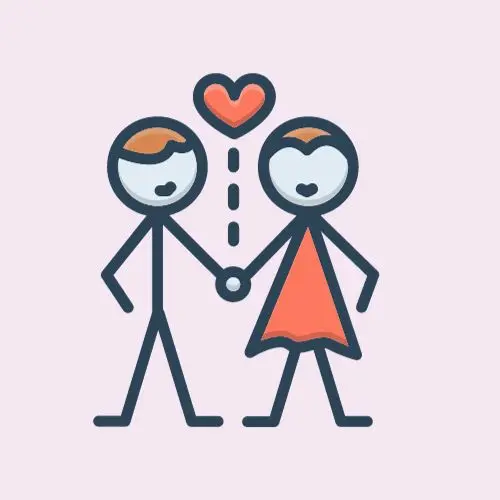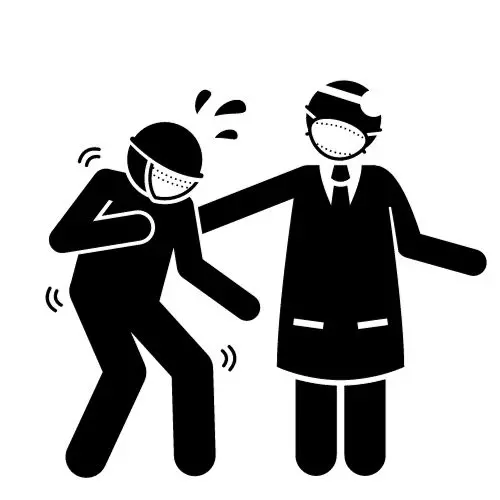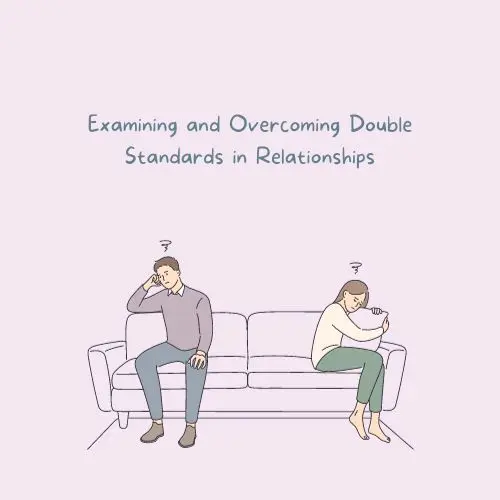Double standards arise when people apply contradicting expectations to their partner versus themselves. One partner ends up restricted while the other receives more freedom. This breeds resentment and distrust over time. Recognizing double standard behaviors early and establishing mutual respect for reasonable boundaries can help restore fairness.
Common Areas Where Double Standards Emerge
| Area | Example Double Standards |
|---|---|
| Social Life | He goes out frequently while she cannot |
| Friends | Her male friends make him uncomfortable, but she doesn’t mind his female friends. |
| Household Duties | She does most chores while he lounges around |
| Career | He expects her to prioritize parenting over career but doesn’t limit his professional pursuits. |
| Fidelity | He flirts with others but would be angry if she did |
| Finances | She is on a strict budget, while he freely spends on hobbies |
| Decision Making | He makes major decisions unilaterally that affect them both |
Double standards exert an unfair imbalance of freedom and restrictions between partners. They breed resentment when one partner shoulders a disproportionate burden.
Impact of Double Standards on Relationships

Allowing double standards to persist gradually erodes the foundation of a relationship in the following ways:
- Sets up an unfair power dynamic between partners
- This leads to one partner feeling devalued and unappreciated
- Cultivates anger, resentment, and feelings of being wronged
- Encourages secrecy and dishonesty from the restricted partner
- Damages mutual trust and sense of partnership
- Kills intimacy and emotional connection over time
Ongoing double standards make relationships feel more like a dictatorship than an equal partnership. Eventually, the disadvantaged partner reaches a breaking point unless the balance is restored.
Signs a Double Standard Could Be Damaging Your Relationship

Watch for these symptoms that double standards may be undermining your romantic partnership:
- You justify your actions but condemn your partner for the same behavior
- Your partner frequently expresses frustration over your hypocrisy
- You feel guilty making demands on your partner that you won’t reciprocate
- There is an imbalance in who compromises more during conflicts
- Your partner has become more withdrawn and reluctant to share their feelings
- One of you makes critical relationship decisions unilaterally
- You judge your partner’s needs to be less important than your own
Left unaddressed, these warning signs of inequity can irreparably damage a couple’s intimacy, trust, and happiness.
Overcoming Relationship Double Standards

Repairing the harm from double standards requires brutal honesty, empathy, and compromise. Both partners must recognize their biases and work to build an equal partnership.
Have an Open Discussion
Have a calm, sincere talk about any hypocrisy, control or distrust flowing from double standards. Express how the inequity makes each of you feel without blaming. Identify specific areas needing improvement.
Empathize with Each Other’s Perspectives
Don’t dismiss your partner’s grievances. Make an effort to honestly understand their frustrations and pains caused by the double standard. Validate their feelings and acknowledge where you’ve fallen short.
Outline Clear Mutual Expectations
Discuss and agree on fair standards of behavior that apply equally to both individuals. Identify each partner’s core needs and find a reasonable middle ground. Write this down to formalize expectations.
Examine Your Biases
Take time for self-reflection to become aware of any unconscious biases or resentments you harbor towards your partner. Work on rewiring distorted thoughts that fuel double standards.
Make Amends and Rebuild Trust
If either partner feels violated by past double standard situations, the offending partner should offer sincere apologies and make amends through changed behavior. Rebuilding trust requires proof over time.
Attend Counseling If Needed
For ingrained patterns or complex emotional hurdles, seek guidance from a professional marriage or relationship counselor. They can provide an outside perspective and help steer difficult conversations.
With a mutual willingness to recognize and eliminate double standards, couples can restore their foundation of love, respect, and trust. The effort is well worth it.
Tips for Discussing Double Standards

Bringing up double standards will likely cause defensiveness if not handled carefully. Here are some tips for engaging in a productive discussion:
- Bring up the issue at a time when you are both calm and not already arguing about something else.
- Use “I feel” statements to express your emotions rather than accusations.
- Provide specific examples of troubling incidents rather than vague generalizations.
- Assume positive intentions while still noting the problematic impact.
- Remain open to your partner’s perspective and listen without immediate judgment.
- Express appreciation when your partner makes an effort to see your viewpoint.
- Agree to table the discussion if emotions escalate and revisit when cooled down.
With sensitivity and care on both sides, this challenging topic can spark mutual understanding and positive change.
Examples of Addressing Specific Double Standards
To make an abstract issue more concrete, here are examples of how to address some common double-standard scenarios:
Finances
- “I feel afraid to spend money when you scrutinize my smaller purchases yet make large recreational purchases without consulting me. I want us to agree on a fair budget that allows us both equal discretionary spending.”
Household Responsibilities
- “I feel overwhelmed handling most of the cooking, cleaning, and child-rearing while you relax after work. I need us to write out a division of domestic responsibilities that splits duties fairly between us.”
Social Life
- “I feel lonely and controlled when you forbid me from going out with friends but regularly go on guys’ nights yourself. I want us to agree to more equal flexibility to maintain healthy social lives outside our marriage.”
Career Expectations
- “I feel pressured to put my career ambitions on hold for parenthood when you don’t make the same compromises. I want us to find a work-parenting balance that allows us both to thrive in our careers and as parents.”
With empathy, candor, and compromise, couples can work through even sensitive double-standard dilemmas to arrive at an equitable solution.
When to Seek Outside Help

If attempts to resolve double standard issues continue hitting a brick wall, don’t hesitate to seek outside assistance. Counselling can help:
- If one partner remains defensive and unwilling to acknowledge concerns
- When you keep retreading the same unresolved arguments
- If persistent bitterness or distrust lingers after conflicts
- When your communication has broken down entirely
Don’t let stubbornness or ego prevent getting professional help. An experienced relationship counselor can guide constructive dialogues and exercises to address ingrained patterns.
Long-Term Benefits of Eradicating Double Standards
While uncomfortable in the short term, putting in the hard work to eliminate double standards will yield huge dividends over time, including:
- A sense of true partnership where each person feels valued
- Increased intimacy as both partners can be authentic and vulnerable
- Improved ability to empathize with each other’s needs
- Stronger trust and bond from overcoming challenges together
- A model of equality for any children you have
- Confidence your needs will be cared for
By rooting out hypocrisy and unfairness, both partners will thrive in a healthy relationship built on mutual love and respect. It’s well worth striving for.
The Bottom Line
Left unchecked, double standards will slowly strangle an intimate relationship. But with courage, honesty and willingness to change, couples can eliminate unhealthy hypocrisy and build an equal partnership that honors each individual. There’s no better foundation.

